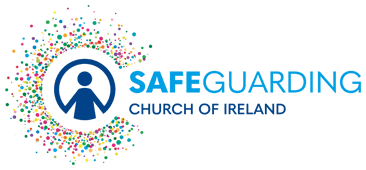ROI Adult Safeguarding
SECTION J: Promoting Safe Practice when working with Adults at Risk
Jump to section:
This policy statement and the good practice guidelines are designed for all members of the Church who have some responsibility for the pastoral care of others. It is intended to help the Church community understand the needs of adults at risk to help improve pastoral care.
The way we behave in the Church is often implied through our faith and values but there may be a need to discuss behaviour with a group and agree what is acceptable and what is not acceptable. This agreement must comply with the code of behaviour below.
Code of Behaviour when working with Vulnerable Adults
(This code must be given to all bishops, clergy, staff and volunteers.)
Bishops, clergy, staff and volunteers should avoid:
- Spending excessive amounts of time alone with an adult at risk
- Taking an adult at risk to your own home
- Taking an adult at risk alone on a car journey, unless part of core activities
Bishops, clergy, staff and volunteers should never engage in any of the following behaviours:
- Abuse, neglect or harm an adult
- Rough physical games
- Sexually provocative games
- Inappropriate comments/jokes
- Form inappropriate relationships
- Discriminate against individuals and their families who have different cultural backgrounds
and beliefs from their own
- Take a photograph or video, including by mobile phone, without consent
Bishops, clergy, staff and volunteers should ensure that:
- Physical contact is person-centred and appropriate to the task required
- They understand and support the implementation of a care plan by relevant health professionals,
where required
- They do not provide intimate care unless in an emergency, if required it is done sensitively and
with respect for the individual’s dignity and privacy
- They involve the individual as far as possible in his/her own care
- If they are concerned about anything during care, they report it at the earliest opportunity
Bishops, clergy, staff and volunteers should:
- Never deny an adult access to his/her money
- Never borrow money from, or lend money to, an adult you are working with or caring for
- Report any suspicions of financial abuse
- Not photograph/video an adult, even by mobile phone, without the adult’s valid consent
- Ensure that any photographs/videos taken are appropriate
- Report any inappropriate use of image
- Report any inappropriate or dangerous behaviour on the internet that involves an adult at risk
It is important that adults at risk are made aware of the dangers associated with new technology, such as social networking sites and the internet, and know to tell someone if they encounter anything that makes them feel unsafe or threatened.
Bishops, clergy, staff and volunteers should:
- Ensure they are familiar with the Church of Ireland’s safeguarding policy
- Set an example they would wish others to follow
- Always respect the person and all their abilities and treat each person with dignity and respect
promoting an environment that enhances disclosure
- Not make assumptions, for example, that you know the family and there must be more to it
- Be respectful when visiting people, taking care to knock before entering a building or a room and
being conscious of length of visits. There may be individual occasions where you may decide that
a lone visit is not appropriate and in such circumstances it is recommended that the adult or their carer as necessary is notified in advance of the visit and appropriate arrangements are put in place for a family member to be present or a colleague to visit with you
- Remember that an adult at risk is still an adult and must never be treated like a child. The choices that an individual makes should be recognised even if they appear risky and they must never be forced or coerced to participate in an activity. It is important to ensure that the choices offered to individuals are fully understood by them
- Empower adults at risk to safeguard themselves. They should be listened to, believed, given relevant advice and information and always involved in decisions that affect them as far as it possible
- Provide help in such a way as to maximize a person’s independence. People with additional needs can and do lead active and fulfilled lives but some may need support and resources to do so. Respect a person’s independence and do not encourage them to become dependent on you
- Not partake in pastoral care which is beyond an individual’s responsibility and/or competence
- Decline to deal with an individual’s financial affairs unless legally required to do so
- Not accept material or financial gifts. If it would upset or offend someone for the gift to
be refused then the Safeguarding Officer should be informed as soon as possible. This will
avoid any accusation or confusion later
- Be mindful of the language used, tone of voice, and body language. Positive and appropriate language should be used at all times and if necessary, advice should be sought when the person has specific communication needs
- Use touch appropriately and respect an individual’s boundaries. Touch can be a way of communicating affection, warmth and comfort. It should be appropriate and generally initiated by the adult and related to their needs
- Be mindful of the safety of adults at risk but also of your own safety and protect yourself from allegations of inappropriate behaviour. Behaviour should be open, transparent and accountable. Be aware that however well-intentioned someone’s actions are, they may be misinterpreted
by others
- Afford adults at risk the highest level of privacy and confidentiality possible in the circumstances however promises to keep secrets should not be made
- Take care in selecting an appropriate location and setting for a discussion. Offering appropriate care and support is important so, in listening to a person’s problem or offering advice. Where possible, other leaders should be made aware of the meeting and other people should be around
- Avoid situations within a relationship of trust which could compromise that relationship
- Never trivialise abuse or dismiss worries. Allegations and concerns about abuse must be taken
seriously. Careful notes should be written of what has been seen or heard and it should be
reported straight away
- Recognise, record, report; never be afraid to ask for help and advice from your leaders or more
experienced staff. The Safeguarding Officer is available to give consultation and advice.
Breaching the Code
Bishops, clergy, staff and volunteers should understand that:
- If they are unsure of their actions and feel they may have breached the Code, they should consult with their Incumbent, Leader in Charge, Diocesan Adult Safeguarding Panel or the Safeguarding Officer (RI) as relevant
- Breaching the Code is a serious issue that will be investigated
- Breaching the Code may result in Church disciplinary action and ultimately dismissal if it
constitutes harm/risk of harm.

